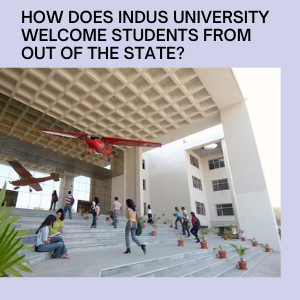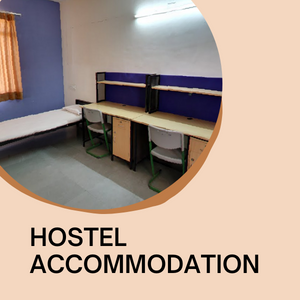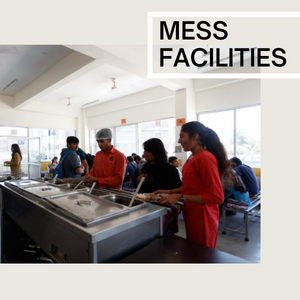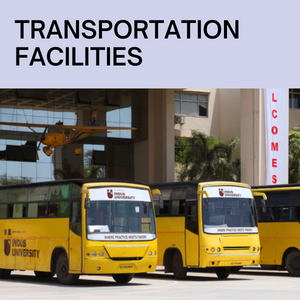Announcement
Get Ready for INDUS CUP 2K26! | Dates: 5–10 January 2026 | Stand a Chance to Win Cash Prizes up to ₹10,00,000!...Read more Get Ready for INDUS CUP 2K26! | Dates: 5–10 January 2026 | Stand a Chance to Win Cash Prizes up to ₹10,00,000!
We are excited to announce the Indus Hackathon 2025, an exhilarating one-day event organized by the CSE Department of Indus University....Read more We are excited to announce the Indus Hackathon 2025, an exhilarating one-day event organized by the CSE Department of Indus University.
26th ISTE Faculty Annual State Convention will be held at Indus University on April 27, 2023....Read more 26th ISTE Faculty Annual State Convention will be held at Indus University on April 27, 2023.
Get Ready for INDUS CUP 2K26! | Dates: 5–10 January 2026 | Stand a Chance to Win Cash Prizes up to ₹10,00,000!...Read more Get Ready for INDUS CUP 2K26! | Dates: 5–10 January 2026 | Stand a Chance to Win Cash Prizes up to ₹10,00,000!
We are excited to announce the Indus Hackathon 2025, an exhilarating one-day event organized by the CSE Department of Indus University....Read more We are excited to announce the Indus Hackathon 2025, an exhilarating one-day event organized by the CSE Department of Indus University.
26th ISTE Faculty Annual State Convention will be held at Indus University on April 27, 2023....Read more 26th ISTE Faculty Annual State Convention will be held at Indus University on April 27, 2023.

Gujarat has historically been praised for its entrepreneurial tendencies rather than its capacity to produce human resources with advanced training. However, given Gujarat's government's ambition to become the nation's education hub, this will likely change quickly. The efforts are focused on luring students from abroad as well as from other states in the states of India. There are currently 20 universities in Gujarat, 10 of which are private (6 already existing and four new have been approved and will commence operations soon). More than 900 higher learning and research institutions provide education to 551 398 students in Gujarat. Thirty-four thousand three hundred twenty-three engineering seats and 47,753 diploma engineering seats have been established in Gujarat. Approximately 10492 seats at the post-graduate (Masters's) level are available in several fields.
Gujarat has made great strides in industrial development. It is one of the states with the most significant growth rates. Still, its higher education system has not been able to produce graduates suitable for immediate employment in the market. The primary and secondary education sectors have seen improvements, but the higher education environment still requires reform. The state administration is, nevertheless, making active efforts to improve the state's infrastructure and higher and technical education standards.
Any city's level of safety will be determined by how safe its women are. Public spaces are unsafe in some locations across the nation, but especially in the metros cities where alcohol is readily available. Gujarat is a dry city that follows Prohibition Law on alcohol.
Just two examples are Law Garden and Manek Chowk. Long after midnight, young women on scooters hang out in this area and other active regions of Gujarat's capital city.
The absence of riots and curfews in Ahmedabad and the majority of Gujarat since 2002 implies that the overall peace dividend has also enhanced women's safety.

Gujarat is proud of its extensive cultural legacy. Gujaratis are the name given to the residents of Gujarat, and Gujarati is their primary language. Gujarat is a state that is prospering in all areas. As a result, many people from all over India have moved here for various reasons, including trade, education, and other endeavours. Although the state has thrived and is moving toward progress, its citizens are nonetheless firmly bound by their traditional moral code.
In Gujarat, families place equal value on men and women. They carry out home duties with efficiency and accuracy. Due to Gandhiji's influence, Gujaratis refrain from drinking alcohol and follow a non-vegetarian diet. Additionally, people invest a lot of time in their religious routines. Gujaratis are vibrant and energetic individuals who coexist in perfect peace while showing respect for one another's religious beliefs and feelings.

The educational experience at Indus University is rewarding and enjoyable for all students. Work, play, and leisure time are all balanced adequately in students' daily routines. Curriculum and methodology have been developed specifically for overseas students to make the teaching-learning process exciting and enjoyable. Genuine interest and involvement are produced by learning through case studies, project-based, problem-based, and choosing elective subjects that interest the learner. In addition, programmes like the Induction Program, the Mentor-Mentee system, and the close relationship between students and instructors ensure that international students are always prepared and motivated to learn.
To keep the university students engaged and foster their creativity throughout the year, the organisation of technical, sports, and cultural activities at the departmental, intra-institutional, and inter-institutional levels has been established. Creating an annual calendar of events, planning and coordinating events by student bodies, and implementing a reward system through constructive competitions are all factors that enhance campus life.


There are 600+ square metres of space in the library. Several books cover all academic fields, including engineering, management, research, design, aviation, English, mathematics, physics, and more that are educational, scientific, historical, fictional, and non-fictional.
In addition to having subscriptions to more than 250 national and international periodicals, it has a library of approximately 36,000 books. Students can find electronic books, journals, and project reports on CDs and DVDs.
Given the diverse tastes and preferences of faculty members and students, the food at the canteen is prepared well. For high-quality, hygienic cuisine, we cook vegetables and rice in steam boilers. The freshness and hygiene of the meals supplied in the canteen are constantly checked. There are two sections of the canteen: one for students and one for staff. Both are large enough to hold 250 faculty members and students at once.


We offer teacher and staff personnel safe and secure transportation options. The fleet of vehicles includes buses that travel along predetermined routes and cover more than 60% of Ahmedabad. In addition to private university buses, local buses can be used to go to campus.
There is more than this for students at the Indus University campus, such as spacious and well-ventilated classrooms and labs, a seminar hall and an auditorium to improve networking benefits through conferences, seminars and workshops. Indus also organises inter-college sports fests and competitions to keep students engaged and discover their mastery of sports.
The campus is one of the most important aspects to consider when picking a college. Indus University's campus was created to foster students' complete development in mind.
Indus's 16-acre campus is designed with students in mind. Indus's calm and serene environment allows the students to study in a relaxed and knowledge-driven environment away from the congested city of Ahmedabad.
We at Indus University think that ragging is a punishable activity. Any confirmed ragging-related behaviours can result in the suspected raggers' admission being cancelled and their scholarships being retained.
The university curriculum emphasises lectures and field trips. Still, it also promotes participation in athletics, brain-teasers, talent shows, debates, volunteer work & community services, workshops for women's empowerment, fitness sessions, and much more. The combination of academic and extracurricular activities makes the campus lively and exciting, allowing graduate and post-graduate students the ability to create lifelong memories.